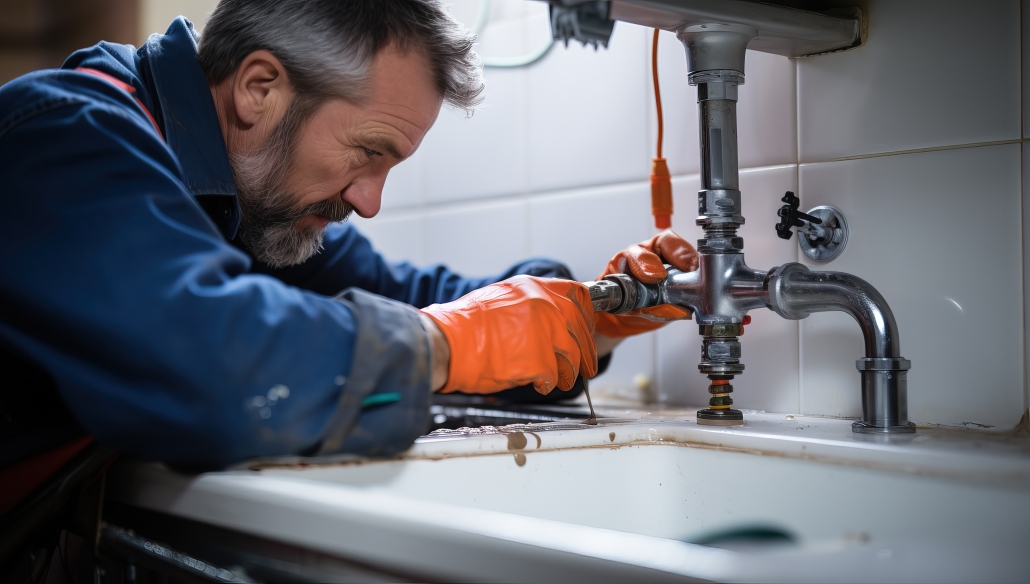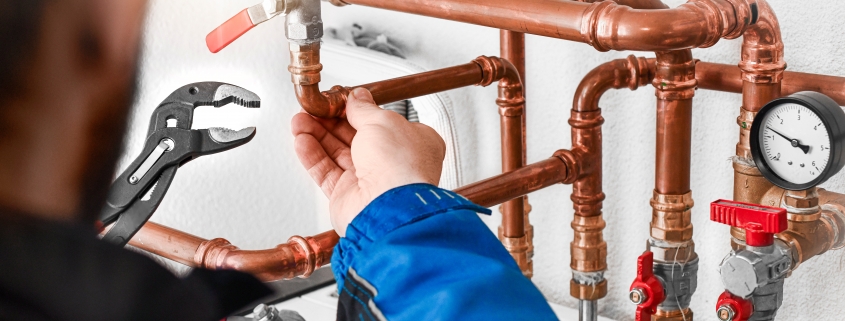Maintenance Tips For Pipe Fittings: Prolonging The Lifespan Of Your Plumbing
Maintenance Tips For Pipe Fittings: Prolonging The Lifespan Of Your Plumbing
When it comes to home maintenance, taking care of your plumbing system is crucial. Specifically, the pipe fittings that form an integral part of this system require regular attention to prevent malfunctions and prolong their lifespan.
In this comprehensive guide, you’ll discover practical tips for maintaining your pipe fittings. These steps are straightforward and will help you keep your plumbing in top-notch condition.
1. Understand your plumbing system
Before diving into maintenance tips for galvanised steel, copper, or PVC pipe fittings, it’s essential to have a basic understanding of your plumbing system. This knowledge helps you identify potential issues and address them promptly.
Generally, your plumbing system is a network of pipes and fittings that ensure efficient water flow and waste disposal. Familiarise yourself with the different types of pipes and fittings used in your home. This familiarity will be invaluable when performing maintenance tasks.
2. Know when to call a professional
While many maintenance tasks can be done by yourself, there are times when it’s best to call in a professional. If you’re dealing with a complex issue or don’t have the right tools, consider hiring a plumber. They have the expertise and equipment to handle any plumbing issue effectively. Here are a few situations where professional help is crucial:
- Persistent Leaks: If leaks recur despite your efforts to fix them, it might indicate a deeper issue within your plumbing system. A professional can diagnose and resolve the underlying problem.
- Renovations And Installations: A professional plumber ensures that everything is done correctly and up to code for any significant renovations or installations involving your plumbing system.
- Major Blockages: If you encounter a blockage that can’t be cleared with a plunger or plumber’s snake, it’s time to call a professional. They have specialised tools to safely and effectively eliminate the blockage without damaging your pipes.
By understanding these scenarios, you can make informed decisions about when to tackle plumbing issues yourself and when to seek a professional local plumber.
3. Inspect for leaks regularly

Leak detection is a vital part of pipe fitting maintenance. Even minor leaks can lead to significant issues over time. Regularly inspect your pipes for any signs of leakage. Look for damp spots, water stains, or mould growth around pipe fittings. Catching leaks early can save you from expensive repairs and water damage.
4. Use the right tools
When maintaining or fixing your plumbing, always use the right tools. Avoid makeshift solutions that can damage your pipe fittings. Investing in quality plumbing tools might seem like an upfront cost, but it’ll save you money in the long run by preventing damage. Here are a few essential tools you should consider:
- Pipe Wrenches: These are a must-have for gripping and turning pipes. Ensure you have different sizes to accommodate various pipe diameters.
- Plunger And Plumber’s Snake: Ideal for unclogging drains without damaging the pipes.
- Teflon Tape: Used for sealing and lubricating thread joints, this tape is crucial for preventing leaks.
- Adjustable Spanner: A versatile tool that’s useful for tightening and loosening nuts and bolts in your plumbing fixtures.
Equipped with these tools, you’re ready for basic maintenance and emergencies, significantly extending your pipe fittings’ lifespan.
5. Avoid chemical drain cleaners
While it might be tempting to use chemical drain cleaners for blockages, they can do more harm than good. These chemicals can corrode your pipes, leading to leaks and other issues. Instead, opt for mechanical methods like plungers or plumber’s snakes. These tools are safer for your pipes and the environment.
6. Regular cleaning is key
Regular cleaning is beneficial but often unnecessary. Most residential plumbing systems are self-maintained in terms of internal cleanliness, thanks to regular water flow and proper usage.
Homeowners typically don’t need to clean the inside of their pipes. However, if there is visible buildup or slow drainage, it’s essential to use safe and appropriate cleaners for the specific type of pipes you have. For instance, harsh chemicals can damage PVC pipes, while copper pipes may require a gentler approach.
7. Protect pipes from freezing
In regions with cooler temperatures, it’s crucial to safeguard your plumbing against the risk of freezing. Frozen pipes can burst, leading to expensive repairs. Insulate your pipes to keep them warm during cold snaps. Moreover, letting a trickle of water run through the pipes can prevent freezing.
8. Educate your household
Make sure everyone in your household knows the basics of pipe maintenance. This includes not flushing inappropriate items down the toilet and avoiding pouring grease down the sink. These practices can prevent blockages and keep your plumbing system running smoothly, regardless of the type of plumbing pipes you have.
Conclusion
Maintaining your pipe fittings isn’t just about preventing problems; it’s about ensuring the longevity and efficiency of your plumbing system. By following these tips, you’ll keep your home’s plumbing in excellent condition, saving time and money in the long run. Remember, a little effort goes a long way in maintaining the health of your plumbing system.




